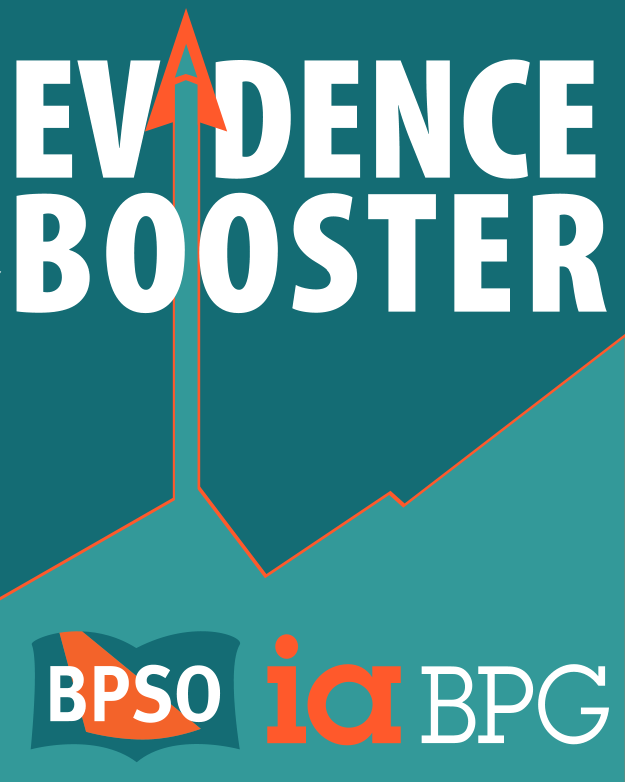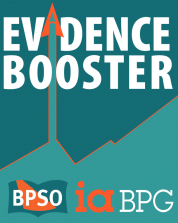
Evidence Boosters
RNAO Evidence Boosters are two-page infographics that demonstrate the impact of evidence-based practice implementation using Nursing Quality Indicators for Reporting and Evaluation® (NQuIRE®) data. They showcase Best Practice Spotlight Organization® success stories on implementation strategies, practice and policy changes, and health outcomes.
Evidence Boosters allow organizations to share implementation and evaluation information with executives, managers and front-line staff to highlight the effects of best practice guidelines using NQuIRE data.
Este soporte a la evidencia examina el impacto de la implementación de la guía de buenas practicas de Valoración y manejo de las lesiones por presión para equipos interprofesionales (2016) de RNAO, en un hospital de Chile.
El Hospital Clínico Herminda Martin, un hospital Universitario, demostró una disminución en la tasa de personas que desarrollaron una nueva lesión por presión y un aumento en el porcentaje de personas que recibieron una evaluación de riesgo de desarrollar lesiones por presión.
Este soporte a la evidencia examina el impacto de la implementación de la guía de buenas practicas de Valoración y manejo de las lesiones por presión para equipos interprofesionales (2016) de RNAO, en un hospital de Chile, Sudamérica.
El Hospital del Trabajador, un hospital de atención compleja en Santiago de Chile, demostró una disminución en el porcentaje de personas que desarrollaron una o más lesiones por presión nuevas y un aumento en el porcentaje de personas que recibieron una evaluación de riesgo de desarrollar lesiones adicionales por presión.
This Evidence Booster examines the impact of implementing RNAO’s Assessment and Management of Pressure Injuries for the Interprofessional Team (2016) best practice guideline (BPG) in a hospital in Chile, South America.
Hospital del Trabajador, a complex-care hospital in Santiago, Chile, demonstrated a decrease in the percentage of persons who developed one or more new pressure injuries and an increase in the percentage of persons who received a risk assessment for developing pressure injuries.
This Evidence Booster evaluates the impact of implementing RNAO’s Person-and Family-Centred Care best practice guideline (2015) best practice guideline (BPG) at Southlake Regional Health Centre, an acute care hospital in Newmarket, Ontario.
This Evidence Booster examines the impact of implementing RNAO’s Preventing Falls and Reducing Injury from Falls (2017) best practice guideline in one Ontario long-term care home.
This Evidence Booster evaluates the impact of implementing RNAO’s Preventing Falls and Reducing Injury from Falls (2017) best practice guideline (BPG) at Humber River Health (HRH), an acute care hospital in Toronto, Ontario.
To examine the clinical outcomes associated with the implementation of RNAO’s Assessment and Management of Pain best practice guideline (BPG) at Grace Manor in Brampton, Ont.
Watford Quality Care Centre (WQCC) is a long-term care home in Watford, Ont. The home implemented RNAO's Assessment and Management of Pain best practice guideline (BPG) across their organization to address the gap in pain management and to reduce incidences of severe pain among their residents. The BPG implementation strategies focused on interprofessional and intersectoral collaboration, as well as early recognition and interventions for pain.
This Evidence Booster evaluates the impact of implementing several RNAO best practice guidelines – Person- and Family-Centred Care, Preventing Falls and Reducing Injury From Falls and Engaging Clients Who Use Substances – in the nursing program curriculum at Nipissing University in North Bay, Ont.
To examine the impact on residents’ health outcomes associated with the implementation of RNAO’s Assessment and Management of Pain best practice guideline in Villa Colombo Toronto while aiming to achieve excellence in residents’ quality of life.

